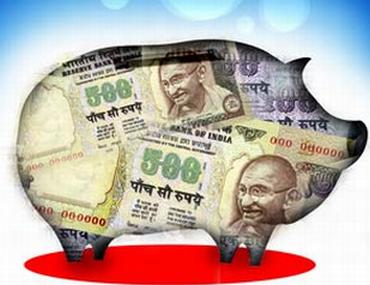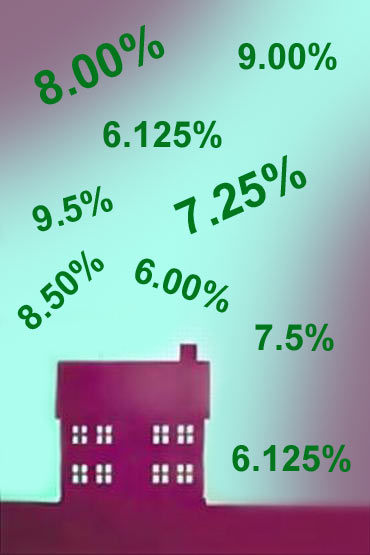 | « Back to article | Print this article |
4 reasons why your savings account earns more for you now
Of late your savings bank account has become little more attractive to park your temporary surplus funds, owing to the cumulative effect of the steps taken by the Government and banking regulator, RBI.
Let us discuss what has made your savings bank deposits a worthwhile avenue to park your funds now.
Also read: Repo rate cut: Expect only TOKEN CUTS in home loans
Apnapaisa is a price comparison engine that allows consumers in India the ability to compare the EMI, interest rates and other fees for home loans, car loans, personal loans, business loans, credit cards, compare online quotes and features of life insurance, health insurance, car insurance, travel insurance and other general insurance policies in India.
4 reasons why your savings account earns more for you now
1. Interest credited on a daily basis
Technology has changed not only the way we live, but also the way we bank. So I would like you to recollect those 'good old' days when computers were not so prevalent, hence it was difficult for the banks to calculate interest on the savings bank account on day-to- day basis.
That was why banks used to pay interest on the minimum balance lying in your bank account between 10th and end of the month.
Though in cases, where you parked huge sums in your savings bank account, if the money were used even for a single day during the month, you would lose the interest for the whole month.
Also read: UNFRIENDLY credit card CHARGES you must know
4 reasons why your savings account earns more for you now
Since savings bank accounts are maintained primarily to run your household expenses, the balance lying in the bank account effectively goes to minimum on the last day of the month for majority of the account holders.
This way almost all the account holders were deprived of their legitimate due.
The reason for following this method of providing interest on savings bank account was the practical difficulty in manually calculating the interest on a daily basis for thousands of bank accounts for each branch of the bank.
Also read: REVEALED: Six secrets to reduce your car loan EMIs
4 reasons why your savings account earns more for you now
Owing to computerisation undertaken by the banks on a massive scale, the decision of calculating interest on a daily basis came into force effective April 1, 2010.
Now that the entire banking system is well equipped to make it happen, computing the interest on these accounts with the help of a click of a button has become quite feasible.
This effectively ensures that you get interest on every single penny you keep in the bank on a daily basis.
Also read: Filed income tax online? You are NOT DONE yet
4 reasons why your savings account earns more for you now
2. Deregulation of interest on savings bank account
Another landmark decision, which led to the significant change in your savings bank account, came with the RBI's announcement of deregulation of interest rates on savings bank deposit account during monetary policy announcement on October 25, 2011.
So what does this deregulation mean to depositors?
Also read: DON'T file your TAX return online before reading this
4 reasons why your savings account earns more for you now
The banks which were mandated to pay an interest rate of four per cent on your saving account balances calculated on daily balance after the directions of RBI as mentioned above, were free to pay any rate of interest on the savings bank accounts.
This resulted in competition among the banks and especially among the new private banks for saving deposits. As a fall out of deregulation of interest rates, many banks have increased their rate of interest.
Prominent among them is Yes Bank. It offers 7 per cent on savings bank account. Kotak Mahindra Bank is offering an interest rate of 6 per cent on the balances above Rs 1 lakh.
Also read: A dummy's guide to set you FREE from DEBT
4 reasons why your savings account earns more for you now
So if your bank has increased the rate of interest to 6 per cent effectively, you will get 50 per cent more interest on the same amount of deposits.
This way we see that it has benefited more of those people who used the savings bank account for earning interest rather than parking the money for meeting the household expenses.
Also read: Now, SECURE your INSURANCE policies in demat form
4 reasons why your savings account earns more for you now
3. Non deduction of tax at source on interest on savings bank account
Only a few people are aware that interest on savings bank deposit account is not subject to any tax deduction at source irrespective of the amount of interest you earn on your savings bank account.
The ability to receive the income without deduction of tax at source plays a prominent role when one makes his/her investment decision. This provision is very helpful for persons who are not taxpayers as their income is not taxable.
Also read: Now, using credit and debit cards will COST you LESS
4 reasons why your savings account earns more for you now
4. Proposal of deduction from income of interest on savings bank account
The attractiveness of savings bank account got magnified with the budget proposal of allowing deduction up to Rs 10,000 to individual and HUF from their taxable income.
So, now the interest up to Rs 10,000 becomes tax-free.
Also read: Budget 2012: 8 ways it impacts the SALARIED
4 reasons why your savings account earns more for you now
Effectively savings bank deposit interest does not exceed this amount for an average individual during the year.
So in case average balance maintained by you with your bank has been around Rs 1.67 lakh or lower during the whole year, the entire interest earned by you on such savings bank account will be exempt.
Also read: Simple ways to SAVE and become RICH
4 reasons why your savings account earns more for you now
Effectively it will yield you 8.57 per cent if calculated on pre-tax basis for the person in the highest tax slab of 30 per cent.
Change in the method of calculating interest accompanied by these two measures -- deregulation of interest rates and deduction up to Rs 10,000 -- makes it a better investment proposition for the people are looking for both liquidity and convenience.
Also read: Banking online? TOP 6 MALWARE you should be BEWARE of










